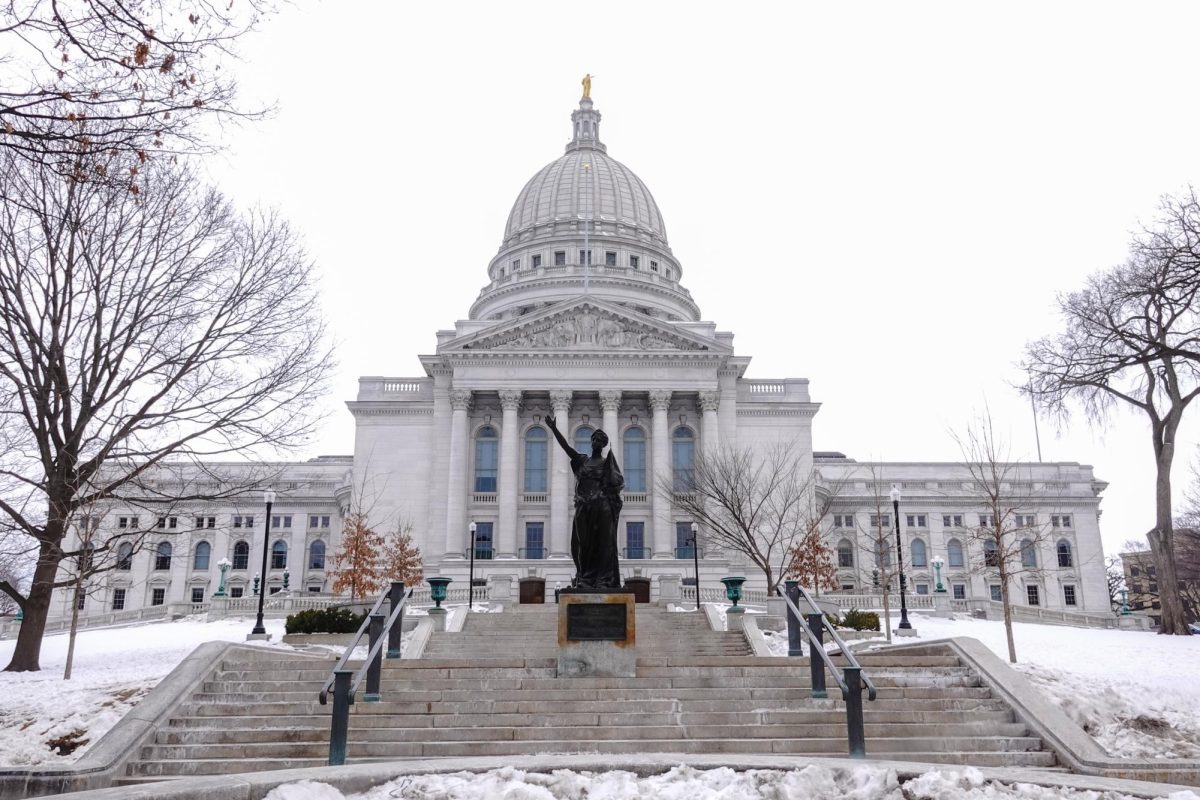Wisconsin voters approved a referendum to be added to the state constitution, requiring photo identification at polling places during the April 1 election, according to Wisconsin Public Radio.
The referendum question, located at the bottom of the ballot, received widespread support from voters across the state — signaling voters want photo identification to be required at polling places, according to WPR.
This change to the Wisconsin Constitution will consolidate rules already implemented by the 2011 state law signed into effect by former Gov. Scott Walker, according to WPR.
Wisconsin law requires voters to present a photo ID for their vote to count, according to the Madison’s Clerk’s Office. The photo ID does not need to show a current address — polling workers are required to check if the name and photograph match.
But, requiring an acceptable form of photo ID creates difficulties for marginalized communities — such as people of color, the elderly and people with disabilities, according to the League of Women Voters of the U.S.
Voting Rights Coordinator for Disability Rights Wisconsin, Anna Anderson, discussed the implications of the referendum being voted on in Wisconsin’s Supreme Court election.
“There are already people in marginalized communities, people of color, Native Americans, people with disabilities that have to come up against a lot of roadblocks just to exercise their right to vote,” Anderson said.
Disability Rights Wisconsin works to ensure people with disabilities can cast ballots privately and independently, addressing issues like registration, ID requirements and accessibility at polling locations.
The requirement of photo identification to vote imposes barriers for individuals in marginalized communities, which face inequalities like lack of DMV locations, transportation and time, Anderson said. Individuals with lower incomes who work overtime jobs face additional challenges in obtaining photo IDs, making it more difficult for them to vote.
“The website for the DMV is not accessible,” Anderson said. “So plenty of people can’t access that. There are definitely issues that need to be addressed well before putting this into the Constitution.”
More than 9% of American citizens of voting age — or 21.3 million people — don’t have proof of citizenship readily available, according to 2024 research from the Brennan Center for Justice.
Consequently, critics regard the photo ID requirement to be an intentional restriction implemented to make it harder for people to vote — specifically marginalized individuals who are less likely to have a photo ID, according to WPR.
Everybody deserves the right to vote and should have equal access to voting at the polls throughout every election, Anderson said.
“The only thing I can say is that everyone in this country should be able to vote if they’re eligible to vote,” Anderson said. “We shouldn’t be making it harder. We should be making it much easier.”
As Wisconsin moves forward with this constitutional change, the debate over voter accessibility and the impact of photo ID requirements will continue raising questions about voters’ rights, Anderson said.



